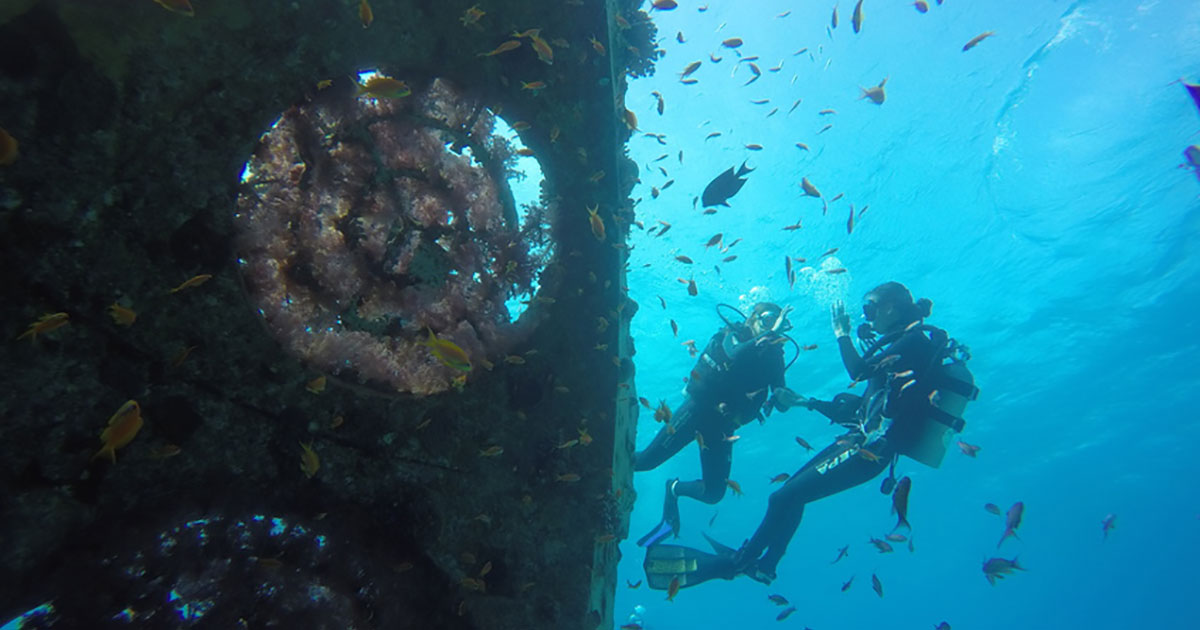Divers are essentially tourists who love coral reefs and invest a lot of time and effort to watch them. Unfortunately, divers also cause damage to corals, often unintentionally, through disturbing and resuspending sand, touching them, hitting them with their equipment, and scaring fish away. Artificial reefs have been proposed as a means of diverting diving pressure from the natural reef to alternative sites, thus preserving both dive tourism and the coral reef.
The problem was noticed years ago in Eilat, and, as a result, in cooperation with the Nature and Parks Authority, Prof.
Nadav Shashar of Ben-Gurion University's Marine Biology and Biotechnology Program and the OBS company, an artificial reef was established there on the border of the nature reserve enclosing the natural coral reefs.
The artificial reef was established in 2006 and, in 2007, corals, which were grown in a special coral nursery, were planted on it. Since then, it has attracted many species of reef fish and other invertebrates that are difficult to find on the natural reef.
The new long-term study, just published in Oceans, tracked the movement of dives before and after the placement of the reef.
Before its installation, the introductory diving instructors had to lead their trainees into the reserve to enjoy the dive.
However, afterwards, it became a magnet for divers, especially guided dives, and introductory dives.
Moreover, introductory dives to the natural coral reefs in the reserve have almost completely ceased.
What's more, the reef remains as attractive as ever 15 years after its installation, thus deciding the question of whether an artificial site would be attractive even after it was no longer a novelty.
Additional researchers included Asa Oren, Re'em Neri, Omer Waizman of the Marine Biology and Biotechnology Program at BGU and The Interuniversity Institute for Marine Science and Natalie Chernihovsky and Jenny Tynyakov of the marine biology program.
The research was supported by the USAID- MERC (Middle East Regional Cooperation) program.



